| | |

Chapter 62
|
|
|
|
|
After James' and Barbara's tragedy:
You explained it to me, I must admit,
a long rap about "no knock" being legislated
for the people you've always hated
in this hell-hole you/we call home.
NO KNOCK
the man will say to protect the people from.
themselves. Who's going to protect me from you?
No knocking, head rocking, enter shocking, shooting,
cursing, killing, crying, lying and being white.
NO KNOCK told my brother Fred Hampton
bullet holes all over the place.
But if you're a wise "no knocker" you'll tell your
knocking' lackeys no knock
on my brother's head
no knock on my sister's head
and double lock your door
because someone may be NO KNOCKING..... For you!
|
|
|
|
|
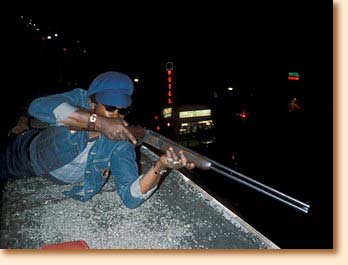 |
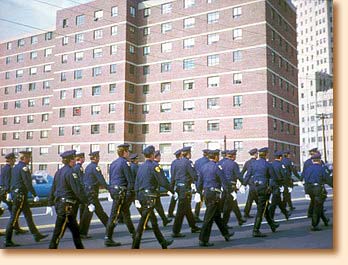 |
| | |
|
On the day I became one with the suffering I could no longer
depict it. The scream from people in the closed system is unheard by the
world on the outside. |
| | |
|
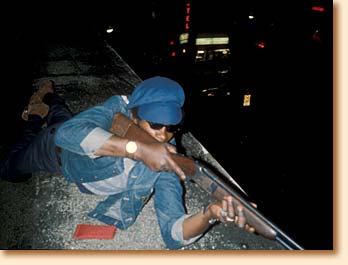 |
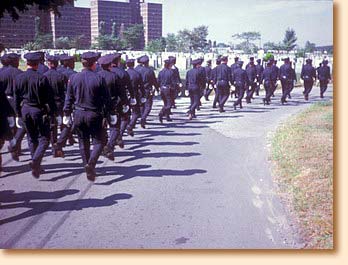 |
| | |
|
A white policeman who was beating a black woman was shot down
in hurt and anger by a young man from a roof top. In revenge, 5,000 cops
marched through the ghetto in a power display to frighten the blacks. |
| | |
|
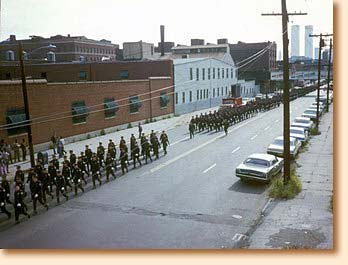 |
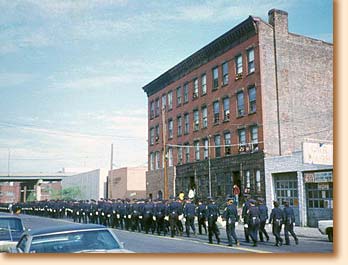 |
| | |
|
Every time a policeman is killed by a black sniper
the entire apparatus of colonial power is set in motion in this
way. |
| | |
|
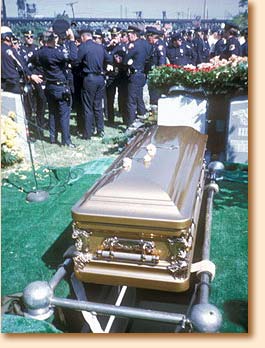 |
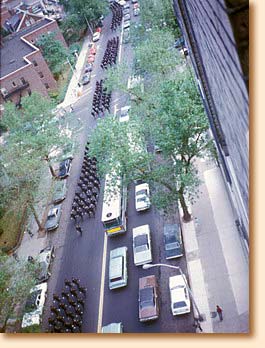 |
| | |
|
But there is a deeper tragedy underlying these sad
police murders. |
| | |
|
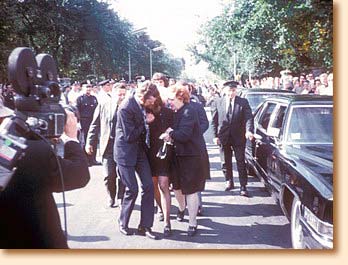 |
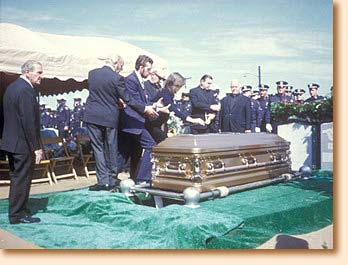 |
| | |
|
This 26-year-old widow of the dead officer comes
as he did from the lower middle class. Even though it is
impossible to excuse the brutality of the police, one can very
well understand it - exploited and downtrodden as these whites have often been
themselves, with such grim prospects in life that they
had no other choice than to join the ranks of the old overseers.
|
| | |
|
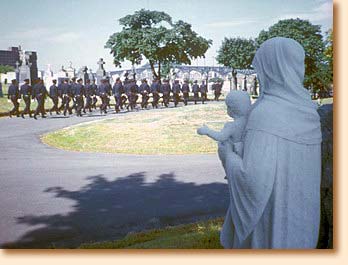 |
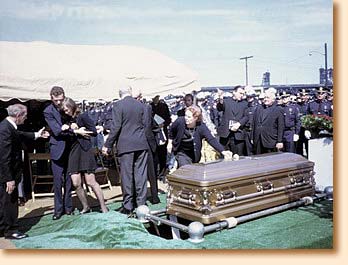 |
| | |
|
The racism and limited trust in fellow beings
instilled in them by their background are reinforced by their
nervousness at being occupation troops in a culture to which they
do not belong. |
| | |
|
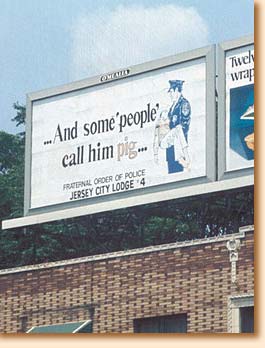 |
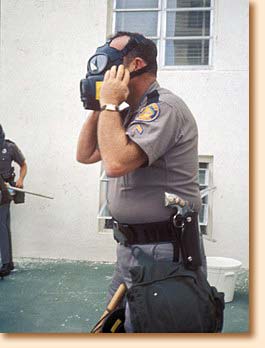 |
| | |
|
It has become common to just attack the police but
it is too often forgotten that they are just as much the victims
of the system as they are its representatives. |
| | |
|
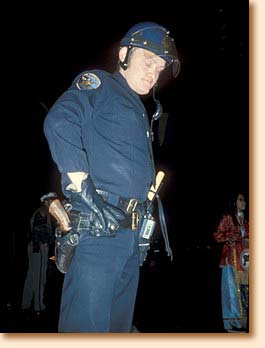 |
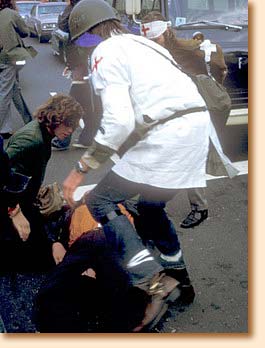 |
| | |
|
Looking at their narrow lips and hardened faces it
is all too easy to despair. |
| | |
|
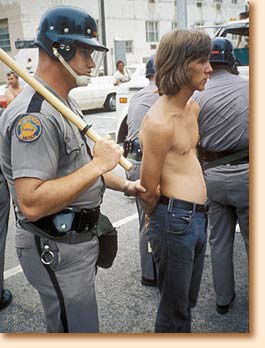 |
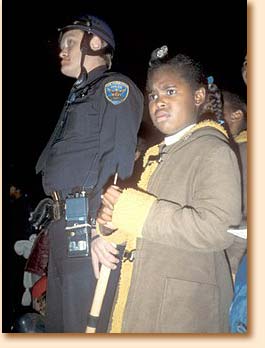 |
| | |
|
One can only infer that they will forever be
marked with bitterness, hatred, and apprehension. |
| | |
|
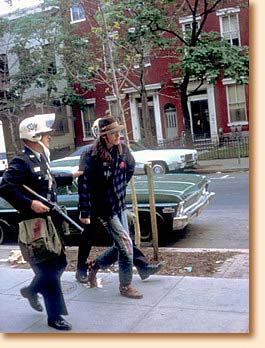 |
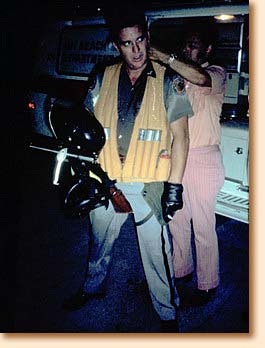 |
| | |
|
But did they mold these faces of their own free
will? |
| | |
|
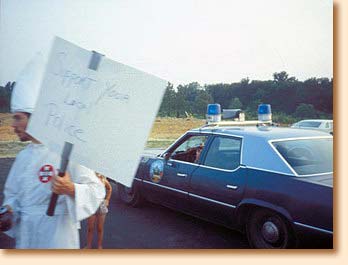 |
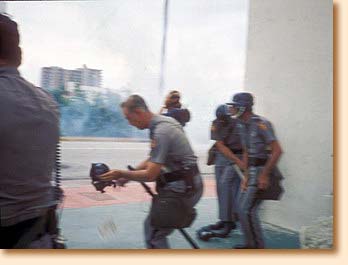 |
| | |
|
Or did their lives force their faces into masks
like closed visors? |
| | |
|
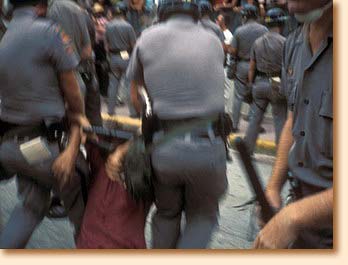 |
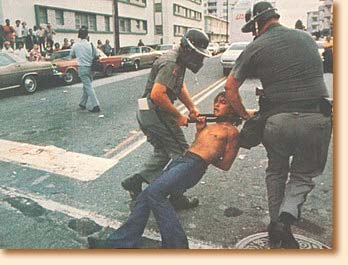 |
|
|
|
Yes, it is difficult to change society into a more
just system, for to even see the necessity for change means to
have faith in the inner goodness of humanity and it means in your
everyday life to be able to look beyond and negate the
master-slave roles, everywhere around. |
| | |
|
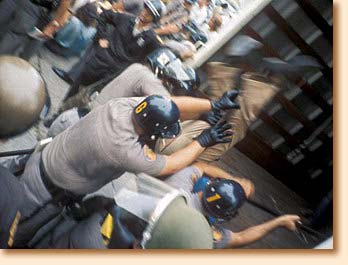 |
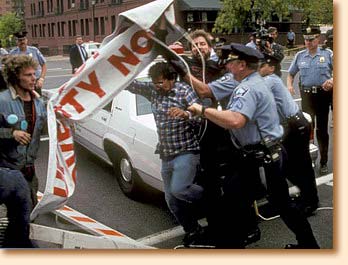 |
|
|
|
The duty of our generation must be to change this system so
that people can become fully human all over the world, not least
for our own survival. |
| | |
|
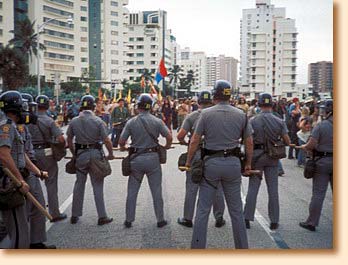 |
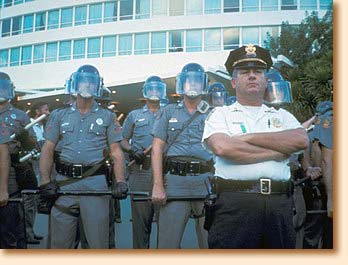 |
|
|
|
I do not think that I would have been able to survive among all
these peculiar people in America if I had not had a strong faith
in the best of people.
|
| | |
|
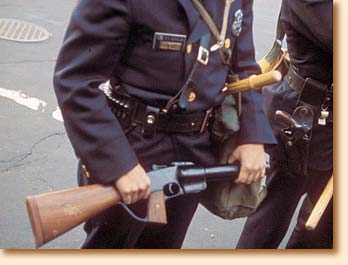 |
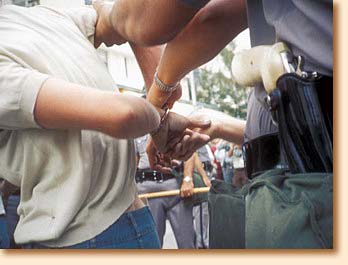 |
| | |
|
If
not, the worst would have gotten the upper hand - and I would have been
obliterated.
|
| | |
|
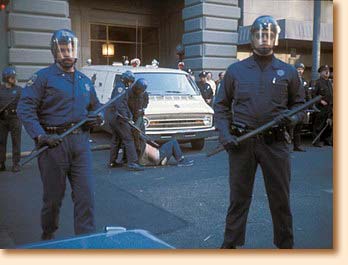 |
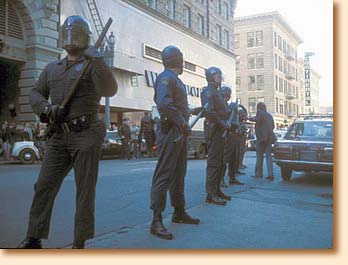 |
|
|
|
My journey has taught me that I can no longer hate any single person or
group or even class of people - not even the worst exploiters. |
| | |
|
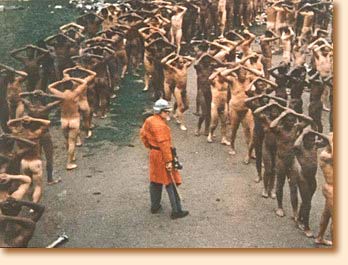 |
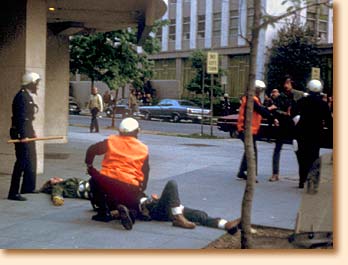 |
|
|
|
If I said that I hated the Rockefeller
family I would quite simply not be honest now that I know some of
its members. |
| | |
|
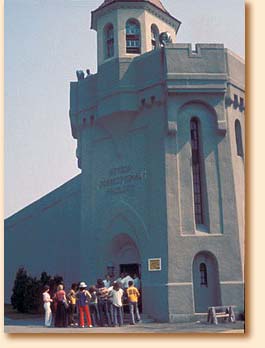 |
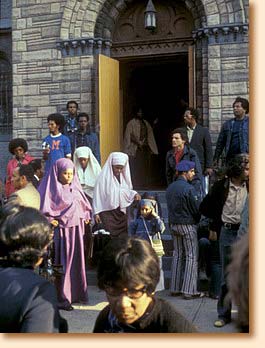 |
|
|
|
Certainly it is true that Nelson Rockefeller
ordered the massacre at Attica and murdered 41 inmates who were
only demanding prison reform. |
| | |
|
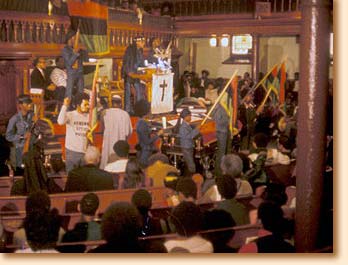 |
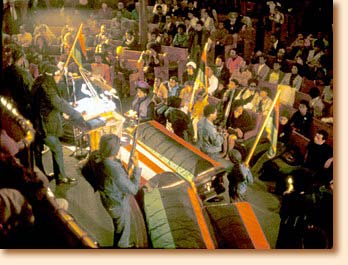 |
|
|
|
But even though I was present at the mass funeral and heard the armed Black
Panthers in the church shout "death to Rockefeller, jail the rich, free the
poor" - and even though I knew several of their relatives among the weeping
families - and even though I once again saw the color of blood in the
Afro-American flag... yes, even then I was not capable of hating Rockefeller.
|
| | |
|
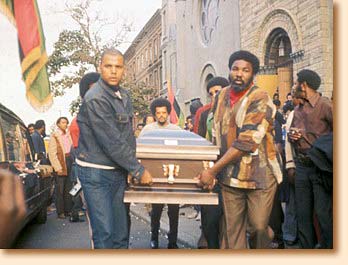 |
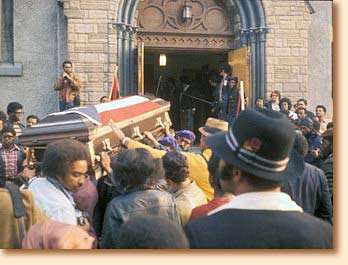 |
|
|
|
For I know that there behind the role he was
brought up to perform and believe in within the system, is
concealed a human being who, under other conditions, would not
have become a murderer in a desperate attempt to subjugate the
underclass. If we understand that the underclass is murdering and
robbing because of its environment, we must also logically
acknowledge that the upper class in its actions, thinking, and
tradition is also slave bound by its milieu. |
| | |
|
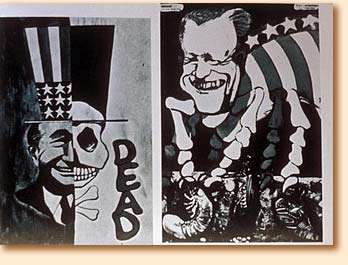 |
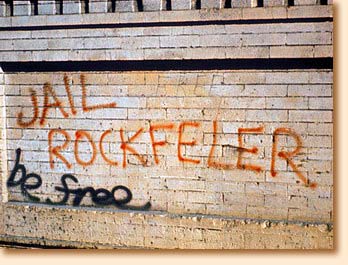 |
|
|
|
The more I let myself become brainwashed into the
upper class, the more its actions started to seem valid and
understandable to me. I would be dishonest if I tried to conceal
that I have come to like the people I've met from America's upper
class. |
| | |
|
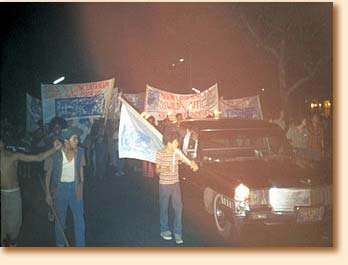 |
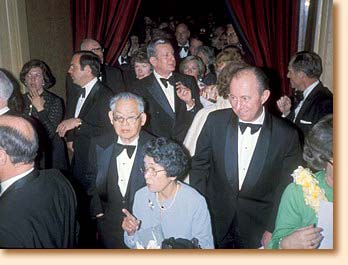 |
|
|
|
When I condemn the upper class it is really a
condemnation of the system which created these classes, and which
teaches their members to rob and murder - not only in the U.S.A., but also in the Third World;
- a system so strong and inhuman that it cannot be changed through
attacking its symbols. |
| | |
|
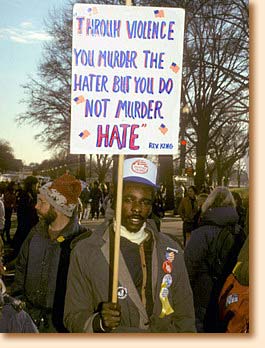 |
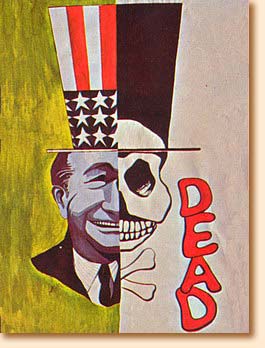 |
|
|
|
If I had hated the Rockefellers as symbols, I
would have denied them the humaneness they had shown me as a
vagabond, under conditions not dictated by the system. The longer
I wandered as a vagabond in this system, the more I lost the
desire to ever again become a part of it. Everywhere the system
had given people a false face.
|
| | |
|
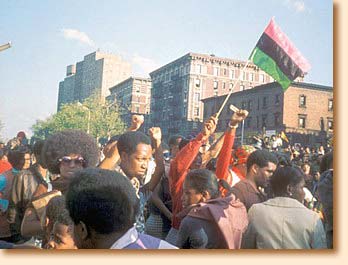 |
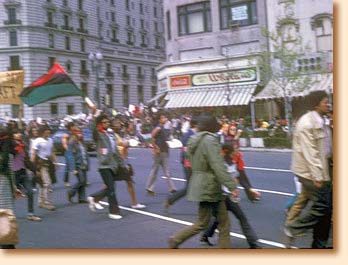 |
|
|
|
The more distinctly these contorted masks outlined
themselves for me, the stronger was my urge to penetrate in behind
them and look out through their narrow eye holes. It was never any
beautiful sight: just hatred and fear and distrustfulness. I did
not wish to become a part of that hatred. |
| | |
|
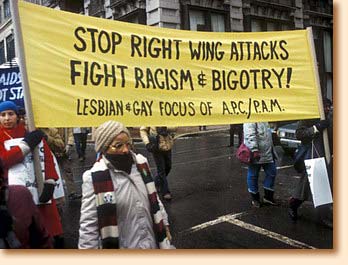 |
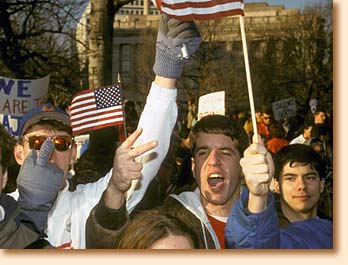 |
|
|
|
I learned that it is easier for people to condemn
and hate than to understand. For hatred is based on one-sided and
simplified considerations and most people are so absorbed in the
pain of not being able to live up to the norms of their milieu
that it is easier for them to reduce reality to symbols rather
than understand it. |
| | |
|
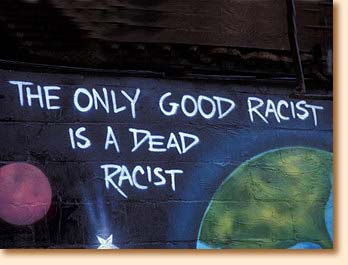 |
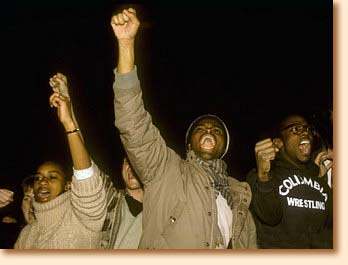 |
|
|
|
It is far easier when reading a book like this one
to hate white Americans than to try and comprehend them, because
in that way we avoid fighting that part of the system which is to
be found in ourselves. Not until we realize how we ourselves are a
part of the oppression can we understand, condemn and change the
forces which dehumanize us all. |
| | |
|
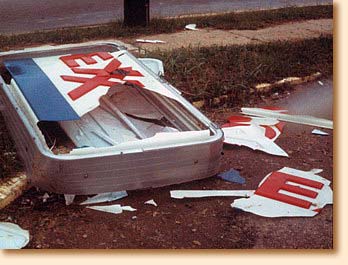 |
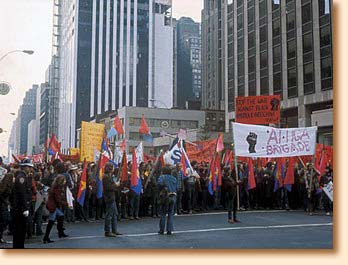 |
|
|
|
In my journey I was able to survive outside the
system, because I always sought the
human being behind the false facade. But everywhere behind these facades I saw
the defeat of love. The more these threads connecting people in a wholesome
society were missing, the more petrified and impenetrable seemed the masks I
always had to penetrate to survive. But even within this oppression it is
possible to find many shades of humanity. Even though love between people has
been killed in this system - we all know that love can shoot up through the
asphalt whenever... wherever... |
| | |
|
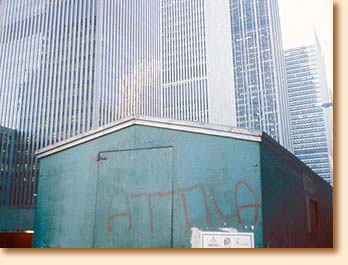 |
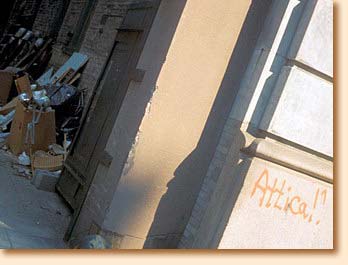 |
| | |
| | |
|
|
| | |